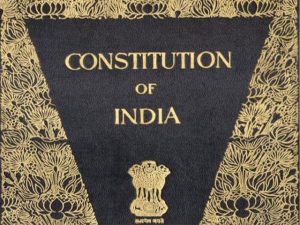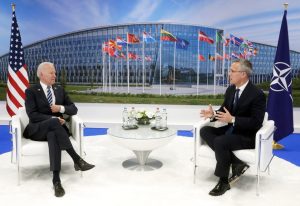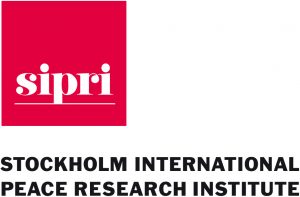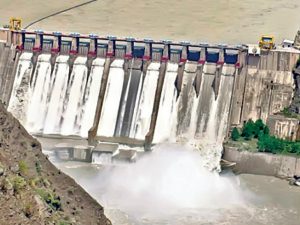Today Current Affairs: 15th June 2021 for UPSC IAS exams, State PSC exams, SSC CGL, State SSC, RRB, Railways, Banking Exam & IBPS, etc
Table of Contents
New Shephard: Tourists To Space:

Last week, Amazon founder and billionaire Jeff Bezos’s space company called Blue Origin concluded the online auction for the first seat on New Shephard, a rocket system meant to take tourists to space. The seat went for a winning bid of $28 million.
- Blue Origin is an American privately-funded aerospace manufacturer and sub-orbital spaceflight services company headquartered in Kent, Washington.
- It was founded in 2000 by Jeff Bezos, the founder, and chief executive officer of Amazon.
New Shephard
- New Shepard is blue origin’s reusable suborbital rocket system designed to take astronauts and research payloads past the Kármán line – the internationally recognized boundary of space.
- New Shephard has been named after Mercury astronaut Alan Shephard – the first American to go to space.
- Alan Shepard was an American astronaut.
- In 1961, he became the second man and the first American to travel into space, and in 1971, he walked on the Moon.
- Project Mercury was the first human spaceflight program of the United States, running from 1958 through 1963.
Open Societies:

India signed off on a joint statement by G-7 and guest countries on “open societies”.
- The ‘Open Societies Statement’ was adopted at the end of an G7 outreach session titled ‘Building Back Together—Open Societies and Economies’, where Prime Minister Narendra Modi was invited as a lead speaker.
- The joint statement was signed by the G-7 countries, and India, South Korea, Australia and South Africa, with host British Prime Minister Boris Johnson calling them “Democracies 11”.
- This statement reaffirms the values of “freedom of expression, both online and offline, as a freedom that safeguards democracy”.
- The statement also refers to “politically motivated internet shutdowns” as one of the threats to freedom and democracy.
- It also affirmed, “human rights for all, both online and offline, as set out in the Universal Declaration of Human Rights and other human rights instruments, and opposition to any form of discrimination, so that everyone can participate fully and equally in society”.
Naftali Bennett:Prime Minister of Israel.:

Naftali Bennett was sworn-in as the new Prime Minister of Israel.
- The former defense minister and high-tech millionaire, Bennett, a 49-year-old leader of the right-wing Yamina party, took oath of office after the Israeli parliament Knesset elected him as the 13th Prime Minister by a 60-59 vote in the 120-member house.
- An eight-party alliance, ranging from the right-wing Jewish Nationalist Yamina party to Arab lawmakers, was formed early this month by centrist politician Yair Lapid centrist and ultra-nationalist Bennett.
- Mr. Bennett will be prime minister until September 2023 as part of a power-sharing deal. He will then hand power over to Yair Lapid for a further two years.
- His victory ended the 12-year power of former prime minister Benjamin Netanyahu, the country’s longest-serving leader.
Integrated Food Security Phase Classification (IPC):

UN emergency relief coordinator Mark Lowcock said Tigray region of Ethiopia is witnessing widespread famine. According to an Integrated Food Security Phase Classification (IPC) analysis, famine conditions in Tigray are in phase 5 with 350,000 people out of Tigray’s 6 million population are experiencing famine.
- The Integrated Food Security Phase Classification (IPC), also known as IPC scale, is a tool for improving food security analysis and decision-making.
- It is a standardised scale that integrates food security, nutrition and livelihood information into a statement about the nature and severity of a crisis and implications for strategic response.
- The IPC was originally developed for use in Somalia by the United Nations Food and Agriculture Organization’s Food Security Analysis Unit (FSAU).
- The following table includes a summary of the IPC scale –
- Phase 1: Generally Food Secure (More than 80% of households can meet basic food needs without atypical coping strategies)
- Phase 2: Borderline Food Insecure (For at least 20 percent of households, food consumption is reduced but is minimally adequate)
- Phase 3: Acute Food and Livelihood Crisis (At least 20 percent of households have significant food consumption gaps. Levels of acute malnutrition are high and above normal)
- Phase 4: Humanitarian Emergency (At least 20 percent of households face extreme food consumption gaps, resulting in very high levels of acute malnutrition and excess mortality)
- Phase 5: Famine/Humanitarian Catastrophe (At least 20 percent of households face a complete lack of food and/or other basic needs and starvation, death, and destitution are evident; and acute malnutrition prevalence exceeds 30%; and mortality rates exceed 2/10000/day)
Innovations For Defence Excellence (iDEX) – Defence Innovation Organisation (DIO):

Defence Minister Rajnath Singh has approved the budgetary support of ₹498.8 crores to Innovations for Defence Excellence (iDEX) – Defence Innovation Organisation (DIO) for the next five years.
- Innovations for Defence Excellence (iDEX) was launched by the Government of India in 2018.
- iDEX will be funded and managed by a ‘Defence Innovation Organization (DIO)’ which has been formed as a ‘not for profit company as per Section 8 of the Companies Act 2013 by the two founder members i.e. Defence Public Sector Undertakings (DPSUs) – HAL & BEL along with the Department of Defence Production (DDP).
- iDEX will function as the executive arm of DIO, carrying out all the required activities while DIO will provide high-level policy guidance to iDEX.
- The iDEX framework and establishment of the DIO is aimed at promoting innovation and indigenisation in the aerospace and defence sector at the start-up level. The scheme is aimed at providing financial support to nearly 300 start-ups, MSME, individual innovators and 20 partner incubators.
Project O2:

The Office of Principal Scientific Adviser, Government of India has launched ‘Project O2 for India’. Its objective is to enable stakeholders to work to augment the country’s ability to meet the rise in demand for medical oxygen.
- Office of the Principal Scientific Adviser to the Government of India
- In November 1999, Cabinet Secretariat established the Office of the Principal Scientific Adviser to the Government of India.
- The PSA’s office aims to provide pragmatic and objective advice to the Prime Minister and Cabinet on matters related to science, technology, and innovation with a focus on the application of science and technology in critical infrastructure, economic and social sectors in partnership with Government departments, institutions, and industry.
- The first PSA was APJ Abdul Kalam and the current PSA is K. VijayRaghavan.
- The 9 member Prime Minister’s Science, Technology And Innovation Advisory Council (PM-STIAC) are headed by the Government of India’s Principal Scientific Adviser to (K. Vijay Raghavan).
Tulu language: Demand To Include In the Eighth Schedule Of The Constitution:

Demand grows for Tulu to be included in the eighth schedule of the Constitution and given official language status in Karnataka and Kerala.
- Tulu is a Dravidian language spoken mainly in two coastal districts Dakshina Kannada and Udupi of Karnataka and Kasaragod district of Kerala.
- As per the 2011 Census report, there are 18,46,427 Tulu-speaking people in India.
- Robert Caldwell (1814-1891), in his book, A Comparative Grammar of the Dravidian or South-Indian Family of Languages, called Tulu “one of the most highly developed languages of the Dravidian family”.
- Tulu has a rich oral literature tradition with folk-song forms like paddana, and traditional folk theatre yakshagana.
- Assamese, Bengali, Gujarati, Hindi, Kannada, Kashmiri, Konkani, Malayalam, Manipuri, Marathi, Nepali, Oriya, Punjabi, Sanskrit, Sindhi, Tamil, Telugu, Urdu, Bodo, Santhali, Maithili and Dogri are the 22 languages presently in the eighth schedule to the Constitution.
NATO Summit Was Held Recently In Brussels:

NATO Summit was held recently in Brussels. It brought together the leaders of all 30 Allied nations.
- The heads of the NATO countries said they “remain firmly committed to NATO’s founding Washington Treaty, including that an attack against one Ally shall be considered an attack against us all, as enshrined in Article 5.”
- It included language about updating Article 5 to include major cyberattacks, which have become a significant and growing concern.
About North Atlantic Treaty Organization:
- It is an intergovernmental military alliance.
- Established by the Washington treaty.
- Treaty that was signed on 4 April 1949.
- Headquarters — Brussels, Belgium.
- Headquarters of Allied Command Operations — Mons, Belgium.
SIPRI Year Book 2021:

Swedish think tank Stockholm International Peace Research Institute (SIPRI) has released its Year Book 2021.
Key findings:
- India possessed an estimated 156 nuclear warheads at the start of 2021, compared with 150 at the start of last year, while Pakistan had 165 warheads, up from 160 in 2020.
- China’s nuclear arsenal consisted of 350 warheads, up from 320 at the start of 2020.
- The nine nuclear-armed states — the U.S., Russia, the U.K., France, China, India, Pakistan, Israel and North Korea — together possessed an estimated 13,080 nuclear weapons at the start of 2021.
- Russia and the U.S. together possessed over 90% of global nuclear weapons.
- The overall number of warheads in global military stockpiles now appears to be increasing, a worrisome sign that the declining trend that has characterized global nuclear arsenals since the end of the Cold War has stalled.
- The larger concern is that India and Pakistan are seeking new technologies and capabilities that dangerously undermine each other’s defense under the nuclear threshold.
- India-Pakistan “risk stumbling into using their nuclear weapons through miscalculation or misinterpretation in a future crisis.
- China’s evolving profile as a nuclear weapons state was compounding India’s security challenges.
Revised Subsidy For Electric Vehicles:

The central government has decided to increase the subsidy by 50% on electric two-wheelers under the FAME-II (Faster Adoption and Manufacturing of Electric Vehicles) scheme in view of the adoption of eco-friendly vehicles.
New Modification:
- The Centre has made a partial modification of the FAME-II, including increasing the demand incentive for electric two-wheelers to Rs. 15,000 per KWh from an earlier uniform subsidy of Rs 10,000 per KWh for all EVs, including plug-in hybrids and strong hybrids except buses.
- The government has also capped incentives for electric two-wheelers at 40% of the cost of vehicles, up from 20% earlier.
- It will bring down the prices of electric two-wheelers nearer to the ICE (internal combustion engine) vehicles and remove one of the biggest blocks of the high sticker price of electric two-wheelers.
- Together with the other important factors like extremely low running cost, low maintenance, and zero-emission, such price levels will surely spur a substantial demand for electric two-wheelers.
FAME-II:
- FAME India is a part of the National Electric Mobility Mission (NEMM) Plan.
- The main thrust of FAME is to encourage electric vehicles by providing subsidies.
- NEMM intends to allow hybrid and electric vehicles to become the first choice for the purchasers so that these vehicles can replace conventional vehicles and thus reduce liquid fuel consumption in the country from the automobile sector.
Protected Geographical Indication (PGI) Status: For Basmati Rice:

India, the world’s largest exporter of basmati rice, has applied for protected geographical indication (PGI) status from the European Union’s Council on Quality Schemes for Agricultural Products and Foodstuffs. This would give it sole ownership of the basmati title in the EU.
- Pakistan, which is the only other basmati rice exporter in the world, has opposed this move as it would adversely impact its own exports, especially as the EU is a major market for its basmati.
- Pakistan enacted the Geographical Indications (Registration and Protection) Act in March 2020, which gives it the right to oppose Indian application for registration of Basmati rice exclusive rights.
- While India has said that it is an Indian-origin product in its application, published in the EU’s official journal on September 11.
- As per the EU’s official journal, any country can oppose the application for registration of a name pursuant to Article 50(2) (a) of Regulations (EU) of the European Parliament and of the Council on quality schemes for agricultural products and foodstuffs within three months from the date of publication.
- In May 2010, GI status was given to basmati grown in Punjab, Haryana, Delhi, Himachal Pradesh, Uttrakhand, and parts of western Uttar Pradesh and Jammu & Kashmir.
At the International level: Geographical Indications are covered as a component of intellectual property rights (IPRs) under the Paris Convention for the Protection of Industrial Property. GI is also governed by the World Trade Organisation’s (WTO’s) Agreement on Trade-Related Aspects of Intellectual Property Rights (TRIPS).
- In India, Geographical Indications registration is administered by the Geographical Indications of Goods (Registration and Protection) Act, 1999 which came into force with effect from September 2003
Dagmara Hydro-Electric Project,: Bihar:

A Memorandum of Understanding (MoU) has been signed between National Hydro Power Corporation (NHPC) Limited and Bihar State Hydroelectric Power Corporation Limited (BSHPC) for Implementation of Dagmara Hydro-Electric Project, Supaul, Bihar.
- NHPC is a Category-A Miniratna Company under the Ministry of Power, in the field of Hydropower.
- It is the largest organization for hydropower development in India, currently, NHPC has 24 operational power stations with a total installed capacity of 7071 Mega Watt (MW).
- The project is located near village Dagmara on the right bank and Simri on the left bank, about 22.5 km downstream of Bhimnagar barrage on Kosi river.
- It is a Run-of-the-River scheme. Run-of-river hydro projects use the natural downward flow of rivers and microturbine generators to capture the kinetic energy carried by water.
- Typically water is taken from the river at a high point and diverted to a channel, pipeline, or pressurized pipeline (or penstock).
- The project will have the total capacity of generating 130 MW energy, in which 17 units of 7.65 MW will be installed for power generation.
- The estimated cost of construction of this project is at Rs. 2478.24 crore.




